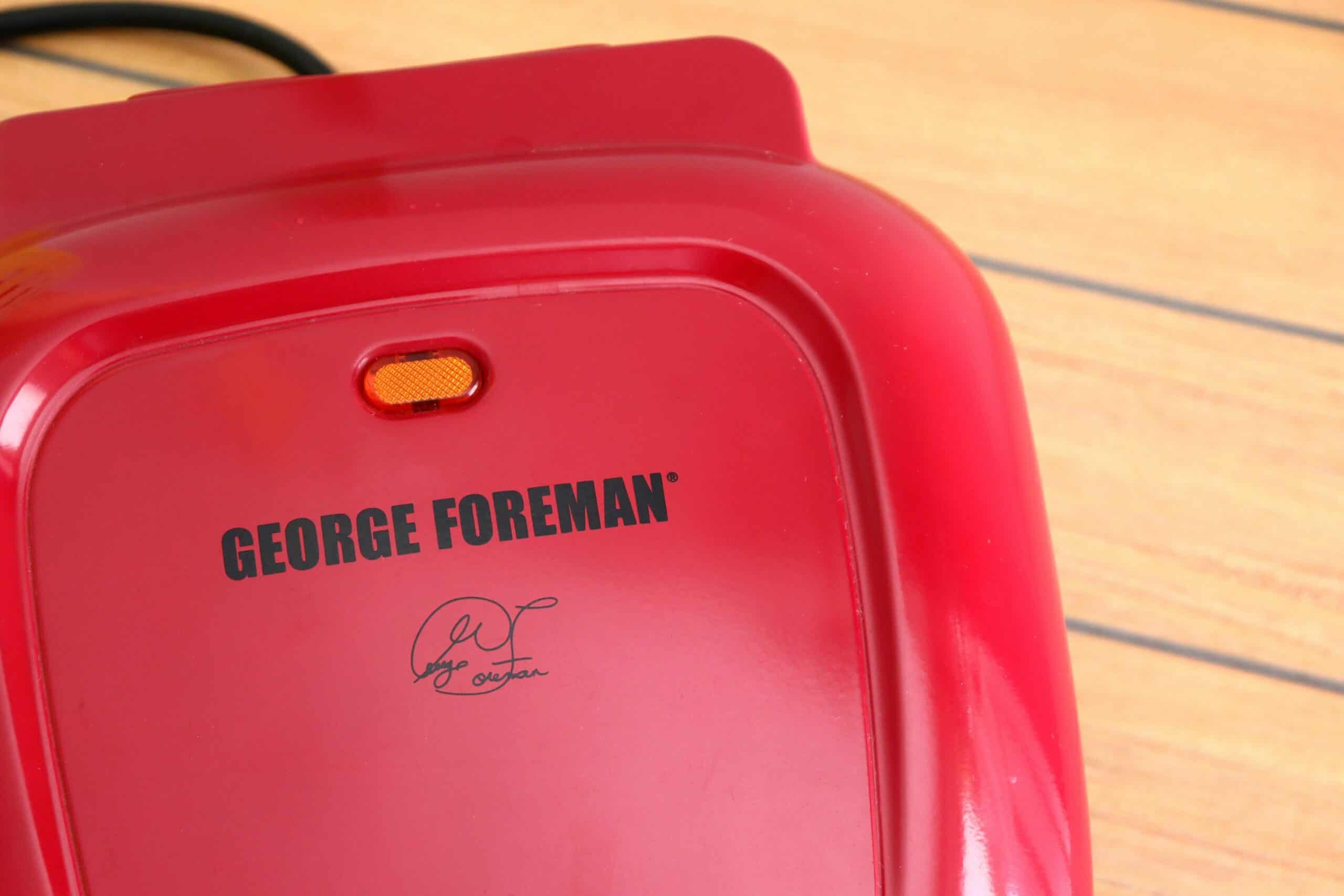
BrendaRochaBlossom/Depositphotos.com
March 28, 2025
Was George Foreman a Better Pitchman Than Boxer?
The passing of George Foreman led to tributes from not only the sports sphere but also culinary worlds, calling out his role in making the eponymous George Foreman Grill a kitchen mainstay.
“His mixture of broad-shouldered authority and fatherly charm made him one of the most successful pitchmen of the 20th century,” proclaimed Robert Klara, senior editor at Adweek.
Many of the remembrances chronicled Foreman’s transformation from a boxer to infomercial star. The change came after a near-death experience led him to become a Christian and preacher following his initial retirement from boxing in 1977.
Foreman returned to the ring in 1987 to raise money for a youth center he founded in Texas, and began showcasing his newfound bubbly persona to the world. He reclaimed his heavyweight title in 1994 at the age of 45.
“The old George Foreman smoked, drank, chewed and swore,” wrote famed Los Angeles Times sportswriter Jim Murray in 1995. “The George Foreman we all know today is a Santa Claus in boxing trunks.”
In 1994, he became an entrepreneur after vowing to make money on his own brand after becoming frustrated with the limited income potential as a spokesperson for Doritos, Meineke, and others. Investing his own money, he signed a profit-sharing deal with Salton, the developer of what became the George Foreman grill, that saw 45 percent of profits go to Foreman.
With his popularity also growing with appearances on talk shows, Foreman started appearing in 30-minute infomercials that initially promoted his pugilistic past, but eventually played up his family roots and infectious enthusiasm as Salton realized the grill’s likely buyers were women.
John DeVore wrote in Rolling Stone, “Foreman’s late-night infomercials were hypnotic, like so many of that time — cheerful pitchmen and women selling kitchen gadgets that made life easier or food healthier. The American dream is buying a set of steak knives on an installment plan at three in the morning. And Foreman was a natural at the job.”
Since its introduction, over 100 million George Foreman grills have been sold, with the item on view at the Smithsonian National Museum of American History. Foreman would end up earning significantly more money selling grills than boxing.
The New York Times and Tasting Table noted that the other factors also propelled the grill’s popularity, including the promise of fast and smokeless indoor grilling. The ’90s witnessed increased interest in cooking — with the Food Network debuting in 1993 and food blogging taking off, as well as a heightened health consciousness that included calls for low-fat diets from Martha Stewart and Richard Simmons. The grill was also affordable and compact — making it ideal for dorm rooms and studio apartments — and could dish up various meals, including vegetarian burgers.
However, Foreman’s dynamic personality was seen by many as critical to the grill’s success. Kim Severson, food correspondent for the New York Times, wrote, “Its runaway success owed as much to its pitchman: a grinning former heavyweight champion of the world, dressed in an apron and a necktie. The infomercial was the perfect vehicle for Mr. Foreman, who mixed a preacher’s charisma and unabashed need to earn money with international fame to create a hit.”
Discussion Questions
How critical were George Foreman’s efforts as a pitchman to the success of the George Foreman grill?
What lessons does George Foreman’s appeal offer around branding and using celebrities as spokespersons?
Poll
BrainTrust
Gene Detroyer
Professor, International Business, Guizhou University of Finance & Economics and University of Sanya, China.
Kai Clarke
CEO, President- American Retail Consultants
Neil Saunders
Managing Director, GlobalData
Recent Discussions








He was a very charming man who won people’s confidence; that made him an ideal frontman. Of course, his own interest in health also made him a good advocate for grilling!
Obviously it wouldn’t have been the George Foreman Grill without him, so the question is really how successful would it have been with some other celebrity endorser (or just on its own merits)? I’m guessing less so…tho how much less I can’t say.
As for the title of this article, I’m going to be diplomatic and suggest that while he was an unexpectedly good pitchman, he was an expectedly good boxer.
Agreed all around. In part because Foreman was an ideal celebrity to sell the idea of “low fat hamburgers” which is what I believe was the real success of the product pitch. That said, there’s a sad and untold story behind it. While Foreman thrived over time, Salton-Maxim (the company behind the campaign and product) failed as soon as Foreman grill sales sagged. Why? They failed to use all the media time to develop strength for their entire line of small kitchen appliances. And the story is particularly sad because they wouldn’t have needed to sacrifice Foreman sales to achieve this.
The success of the grill can be attributed to George Foreman’s efforts as a pitchman, as he very successfully leveraged his fame and affable personality to connect with consumers.
With his enthusiastic endorsements and relatable persona, he helped turn the product into a household item.
His credibility as a former heavyweight champion helped him convey the grill’s ease of use and health benefits, boosting sales considerably.
I’ve worked with dozens of celebrities who pitch products, usually their own, or one in which they are at least in a partnership. Some are very good at it, while many are not. Believe me, I know it all too well.
George Foreman excelled at this. The Forman example illustrates the importance of a celebrity’s status in enhancing consumer trust and brand credibility, provided the celebrity has a well-crafted script and is well coached. An endorsement from a well-known individual can increase consumer trust and interest in a product because of their established reputation and fan base.
It is a celebrity’s success at what they do that makes a difference. In his role as a world-renowned boxer, Forman is known for being strong, big, and successful. Most consumers refer to him as “champion.” That goes a long way.
George Foreman was a master in making the most of his talent, reputation and charisma across vertical business lines. And he showed how to create a memorable brand. To this day, are there many people over the age of 30 who don’t know what a George Foreman grill is?
George promoted his product everywhere, and all of the time. This in itself was different, so that when he appeared anywhere, he made certain to share his promotion of George Foreman grill!
Some people build on their success. And some rest on their laurels. George Foreman used his success as a boxer as a springboard to go on to working on a greater good. And his success as a pitchman may have been rooted in his fame as a boxer, but ultimately he was a genuine, believable salesman. 100 million grills. That’s staggering. He may not have invented the grill, but his pitching elevated that item to icon status. Now I’ll probably spend an hour trying to think of a similar success story with a different pitchman and a different item. Martha Stewart? Bobby Flay? Emeril Lagasse? Nah…I guess you had to start as a boxing champ. Or, maybe more to the point, it has to be about more than just pitching, more than just slapping your name on a product. There was something about the disconnect between the boxer and the guy wearing the apron, along with George’s cheerful demeanor, that made it all work.
As a pitchman, he was charismatic, charming and convincing. As a boxer, Forman had arguably the most devastating punch in history. His fame as a boxer surely helped sales of his grill, which I own.